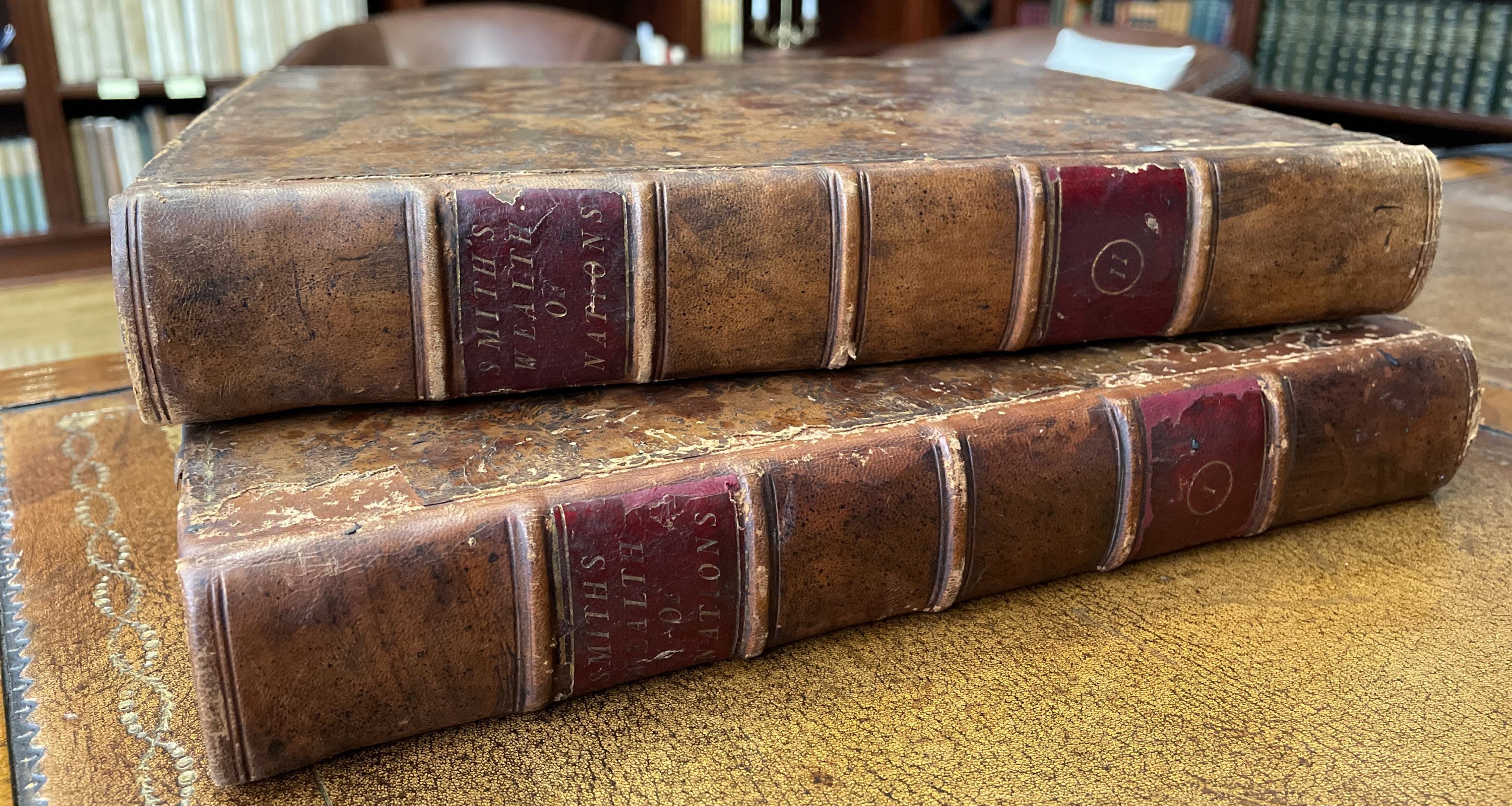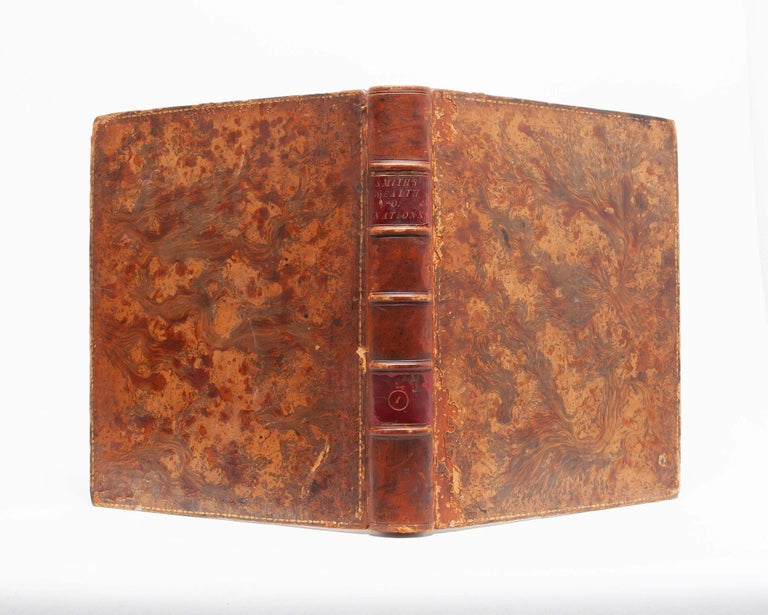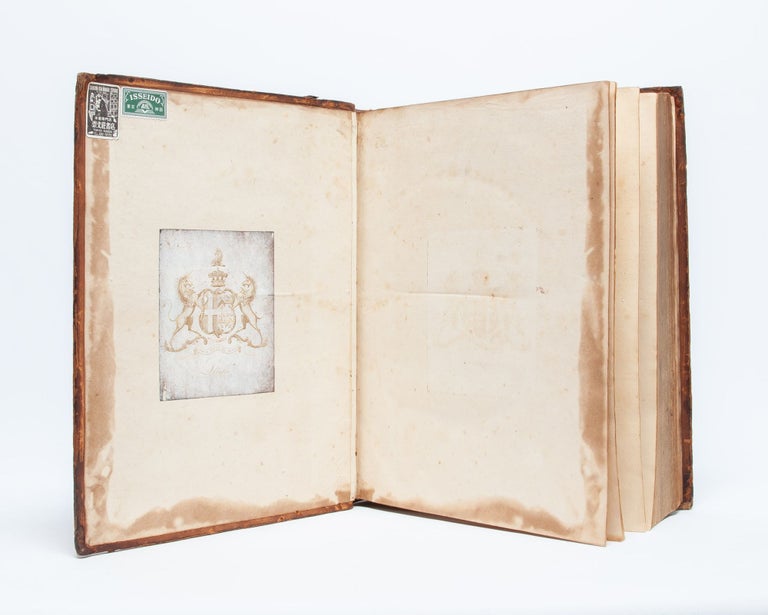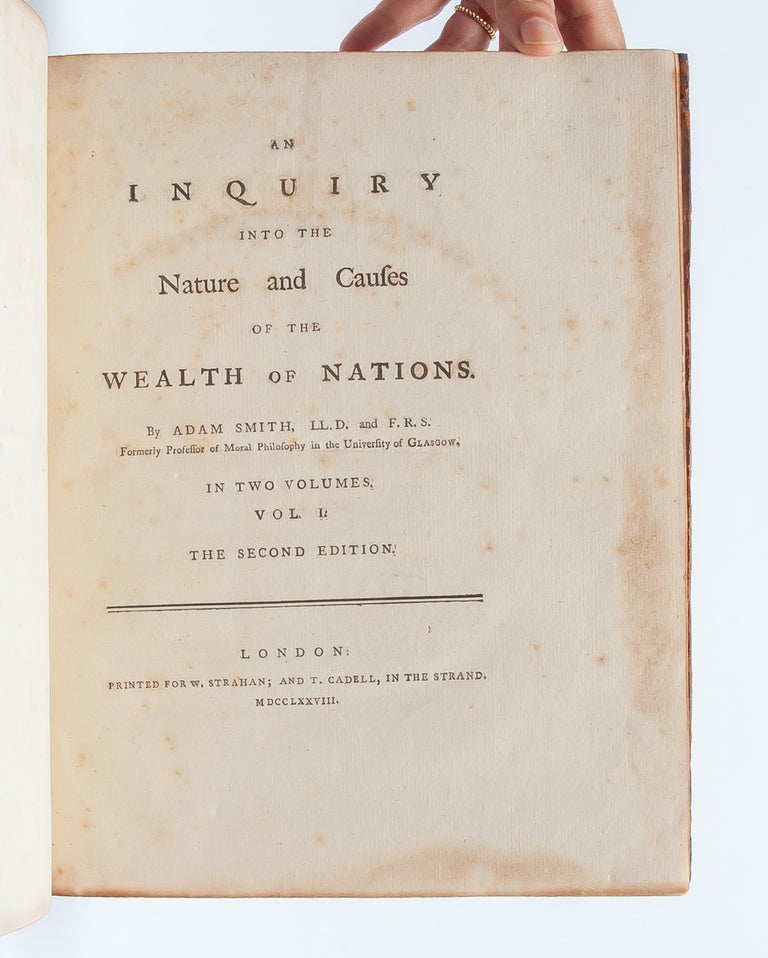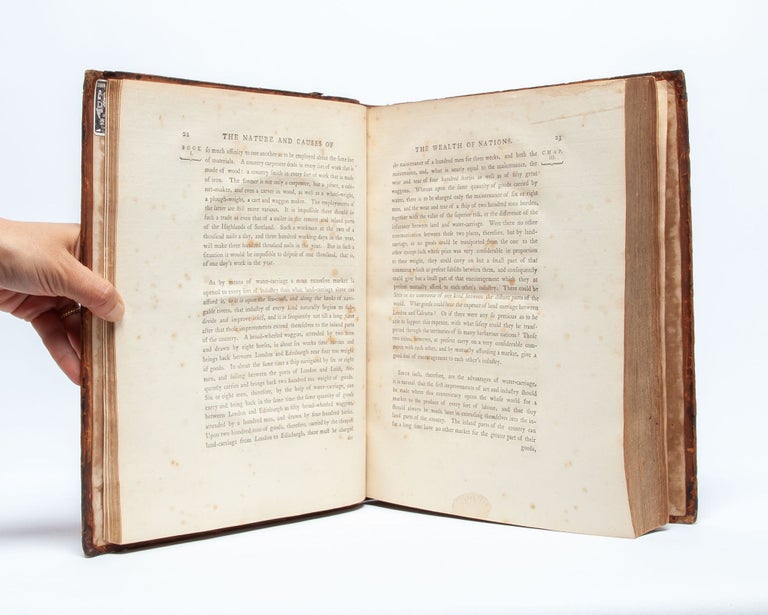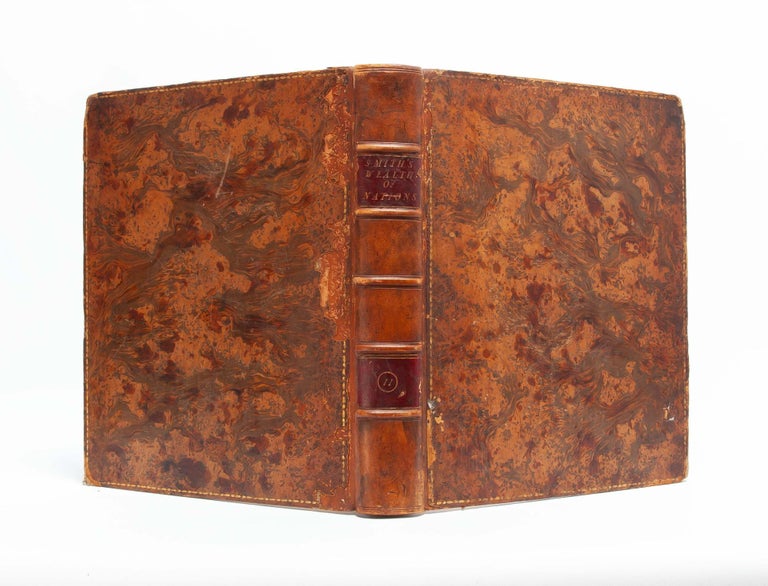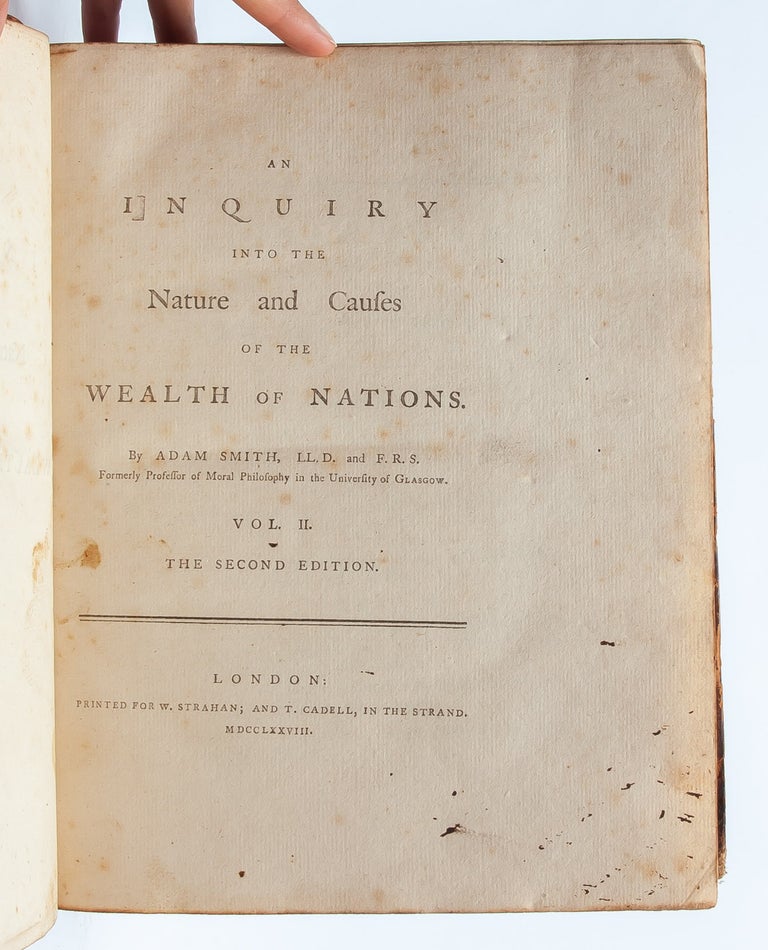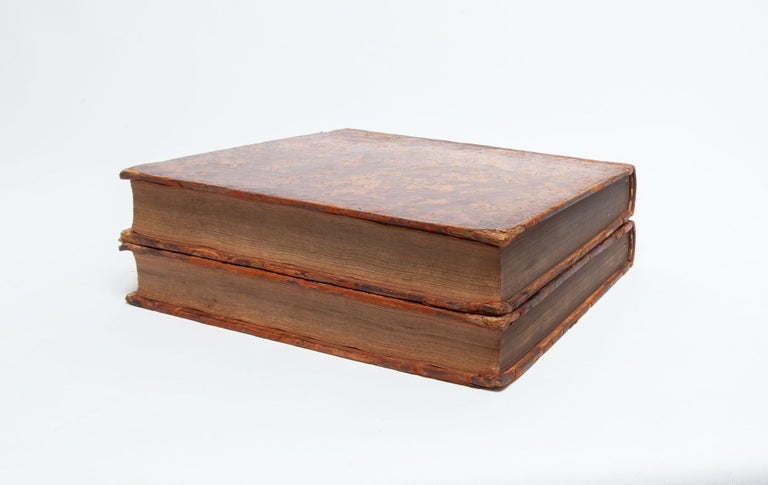An Inquiry into the Nature and Causes of the Wealth of Nations
London: for W. Strahan and T. Cadell, 1778.
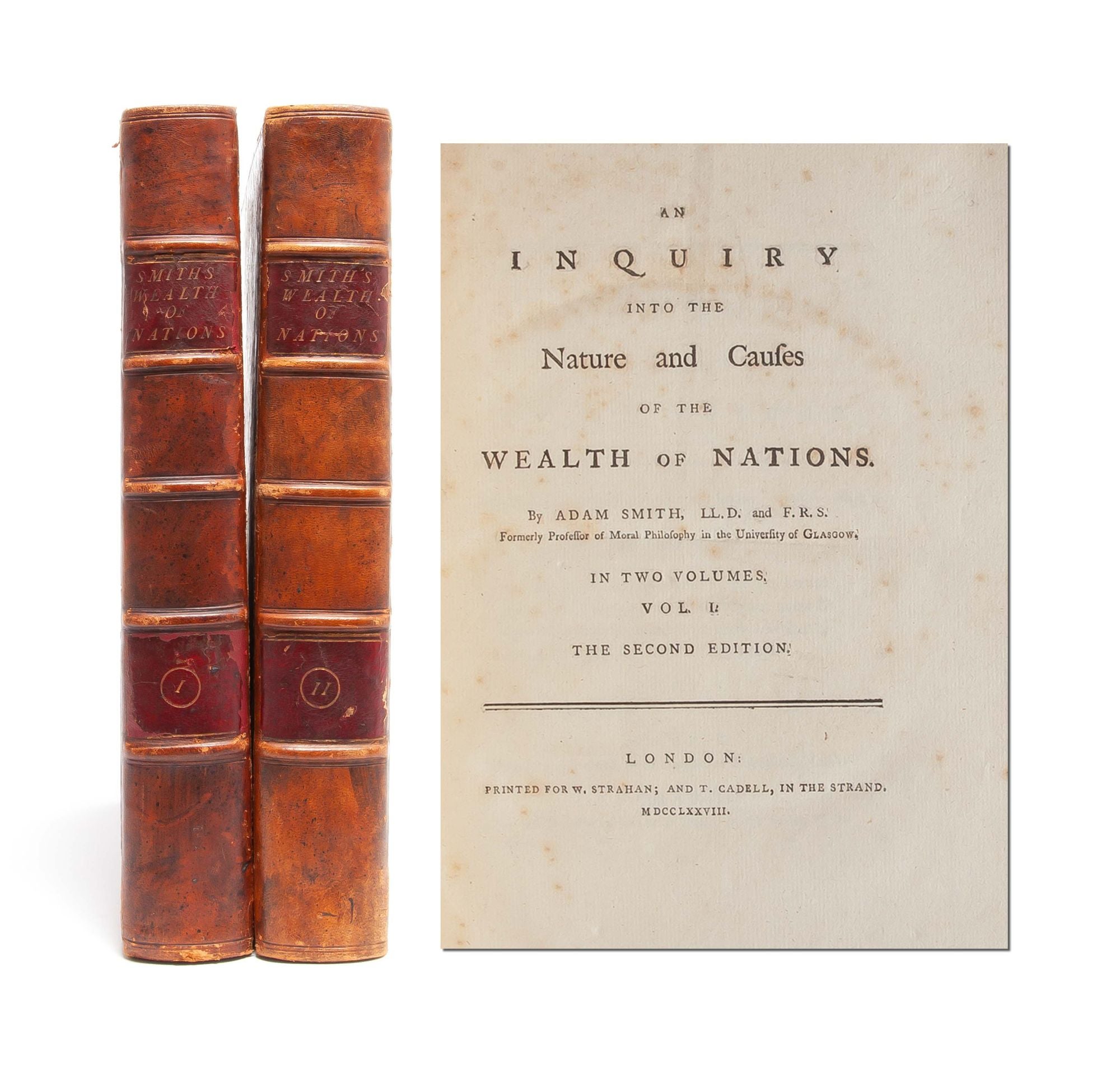

An Inquiry into the Nature and Causes of the Wealth of Nations
London: for W. Strahan and T. Cadell, 1778. Second edition. 2 volumes, quarto (282 × 225 mm), half title in volume 2 (as called for), bound without the final blanks in each volume: [8], 510; [8], 589, [1, blank]. Contemporary tree calf, rebacked, preserving original red morocco spine labels, plain endpapers. Engraved armorial bookplate of the Leigh family of Stoneleigh Abbey ("Tout Vient de Dieu") and two Japanese bookseller's tickets to the front paste-down. Some insect damage to the leather boards, corners worn, light to moderate foxing throughout, mostly in volume 1, a few tears or blemishes, one or two signs of a contemporary reader's engagement with the text; a very good copy overall.
Second edition, first published in 1776, of this classic of economic thought, the only other edition to be published in quarto format, one of 500 copies. Long considered a straight reprint, this edition in fact contains “a number of alterations large and small, some providing new information, some correcting matters of fact, some perfecting the idiom, and a large number now documenting references in footnotes” (Todd).
Published in the same year as the American Declaration of Independence, Adam Smith's The Wealth of Nations was a magnum opus that shaped not only the future of a new republic, but that also urged longstanding sovereign governments to reconsider how and when they regulated markets. Arguing that economic growth comes not from government planning "but as the natural outcome of many people pursuing their own self-interest in the confines of an ordered polity," Smith encouraged economists and political policy-makers to leave free markets to their own operations and focus instead on fulfilling the duties of peace keeping, education, and public infrastructure that they owed their citizenry (The Wall Street Journal).
ESTC T95117. Einaudi 5329; Goldsmiths’ 11663; Kress B.154; Tribe 15; Vanderblue 3; see also PMM 221. Very Good (Item #5444)
